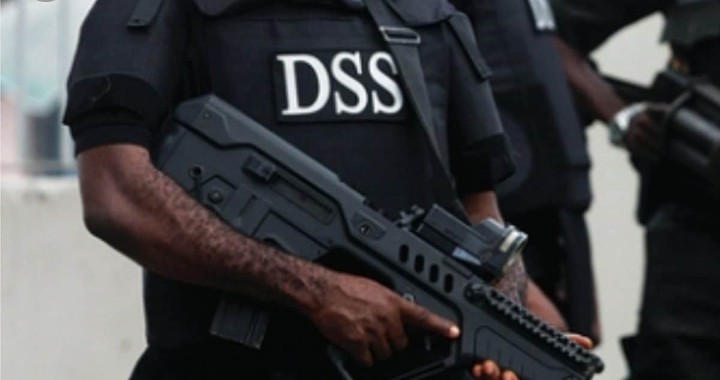Justice Peter Lifu of the Federal High Court in Abuja has granted the Department of State Services (DSS) the authority to detain Ibrahim Nasiru, a suspected terrorist, for a period of 60 days.
This extended detention is intended to allow the DSS to conduct a thorough investigation into the numerous allegations against Nasiru.
The detention period is set to commence from 27th August 2024.

The order was issued by Justice Lifu on Tuesday, following the delivery of a ruling in response to an ex-parte application brought before the court by the DSS.
The application, which sought the court’s permission for the prolonged detention, was presented by Barrister Yunusa Idris Umar on behalf of the DSS.
During the proceedings, Barrister Umar informed the court that Ibrahim Nasiru had been apprehended on 29th July 2024.
Following his arrest, Nasiru was initially presented before a Magistrate Court in Abuja, where the first order for his detention was obtained.
The DSS, however, argued that additional time was required to further investigate the suspect due to his alleged involvement in a series of terrorist activities.
Although the specifics of the terror-related allegations against Nasiru were not disclosed in open court, the DSS’s counsel emphasised the necessity of the extended detention period, citing national security concerns.
He argued that the request for additional detention time was crucial for the ongoing investigation, as it would enable the DSS to delve deeper into the suspect’s alleged connections to terrorist activities.
In his ruling, Justice Lifu reviewed the documentary evidence presented by the DSS and concluded that there was sufficient justification to grant the request.
The judge, therefore, ordered that Ibrahim Nasiru be detained for an additional 60 days, during which the DSS is expected to carry out further interrogation and investigation.
Justice Lifu made it clear that the detention was limited to this period, stressing that it was granted solely for the purpose of completing the necessary investigative procedures.
The decision to extend Nasiru’s detention underscores the gravity of the allegations against him and highlights the challenges faced by security agencies in addressing terrorism-related threats.
The ruling also reflects the judiciary’s role in balancing the need for effective law enforcement with the protection of individual rights, particularly in cases involving national security.
The DSS’s pursuit of a 60-day detention period indicates the complexity and seriousness of the investigation into Nasiru’s activities.
By securing this extended period, the DSS aims to ensure that all aspects of the suspect’s alleged involvement in terrorist activities are thoroughly examined.
This includes uncovering potential networks, identifying accomplices, and preventing any further threats to public safety.
The detention order also signals the judiciary’s recognition of the sensitive nature of terrorism cases, where certain details must remain confidential to protect ongoing investigations and national security interests.
While the court has granted the DSS the necessary time to complete its investigation, it is expected that any further actions will be conducted within the bounds of the law, with due respect for the suspect’s rights.
As the investigation progresses, it is likely that additional information will emerge, shedding light on the extent of Nasiru’s alleged involvement in terrorist activities.
The outcome of the investigation could have significant implications, not only for the suspect but also for broader counter-terrorism efforts in Nigeria.
In conclusion, the Federal High Court’s decision to grant a 60-day detention for Ibrahim Nasiru underscores the seriousness with which the Nigerian judiciary and security agencies are approaching the fight against terrorism.
The extended detention period provides the DSS with the time needed to conduct a comprehensive investigation, ensuring that any potential threats to national security are addressed.
As the case unfolds, it will be closely watched by those concerned with both national security and the protection of individual rights in the face of serious criminal allegations.
Support InfoStride News' Credible Journalism: Only credible journalism can guarantee a fair, accountable and transparent society, including democracy and government. It involves a lot of efforts and money. We need your support. Click here to Donate
